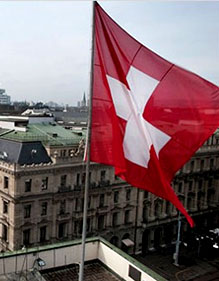|
Getting your Trinity Audio player ready...
|
 Dear Corruption Watch: You wrote about offshore Swiss bank accounts for people like Fana Hlongwana, whose name has been linked to the arms deal. Since South Africa still has exchange controls limiting the amount of money an individual can take offshore, have these people necessarily contravened these laws? And if they used money-laundering techniques to obtain and then squirrel away this money – say, over-invoicing – would a company in whose name they acted be able to prosecute?
Dear Corruption Watch: You wrote about offshore Swiss bank accounts for people like Fana Hlongwana, whose name has been linked to the arms deal. Since South Africa still has exchange controls limiting the amount of money an individual can take offshore, have these people necessarily contravened these laws? And if they used money-laundering techniques to obtain and then squirrel away this money – say, over-invoicing – would a company in whose name they acted be able to prosecute?
Onshore Client
Dear Onshore Client,
Exchange control rules, under the Currency and Exchanges Act, state that a taxpayer in good standing and over the age of 18 can invest up to R4-million outside the Common Monetary Area (Lesotho, Swaziland and Namibia) per calendar year with a tax clearance certificate.
These funds may not be reinvested into the CMA countries. Effective from 1 April this year, the R4-million limit will be increased to R10-million. Another R1-million can be transferred abroad without the requirement to obtain a tax clearance certificate. If a person wants to invest more than prescribed, his or her bank may submit an application to the financial surveillance department of the Reserve Bank for approval. So the size of these Swiss accounts does not necessarily mean any laws have been contravened.
The Reserve Bank maintains a database of all foreign transactions made by all individuals via all banks since the implementation of this allowance in 1996. The surveillance department can pick up transactions that exceed the limit and would presumably contact the individual regarding any excess.
The penalty is a fine of between 20% and 40% of the excess transfer amount. This penalty range, however, only applies if you approach the surveillance department first. Otherwise, the full amount in excess of the limit could be confiscated.
The regulations provide that penalties in the form of fines and even imprisonment may result from contravening exchange control rules. There have been two amnesty periods for South Africans who have illegally taken money offshore, in 2003 and 2011.
As to your question about companies used as vehicles to perpetrate fraud or corruption, in terms of the Companies Act a director of a company is liable for any breach of a fiduciary duty resulting in loss or damages for the company, whether he knew about the activity or not.
The act provides that each shareholder may have a claim for damages against anyone causing the company to do anything inconsistent with the act. In addition, a shareholder, director or trade union member representing the employees can apply to the high court for an order restraining the company from doing anything inconsistent with the act. And a creditor of that company may claim against it or any director for any loss suffered.
So if the individual with the bulging offshore bank account has padded it by using a company as a "front" to elicit kickbacks or under-invoice, he can also face criminal liability.
So whether the state seeks prosecution or not, our laws provide for the private sector to hold the fraudulent or corrupt to account.
Do you face an ethical dilemma? Do you suspect corruption? If you need help to resolve such issues, write to the Corruption Watch experts at letters@businesstimes.co.za. Mark your letter ‘Dear Corruption Watch’


